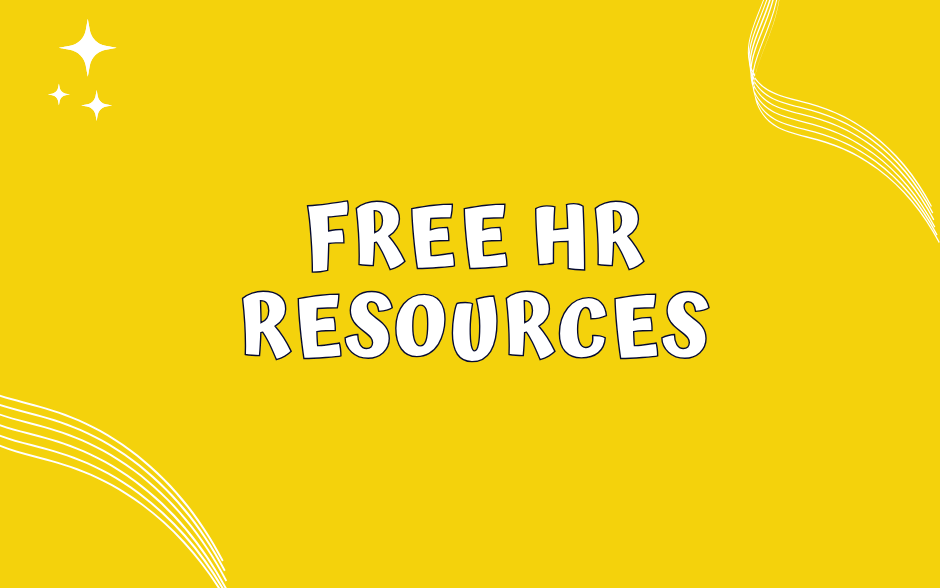How to prevent employees raising a grievance

Grievances are essentially formal complaints against you, somebody in your team, or your workplace 👎
As an employer, it’s likely you’re going to receive at least one in your lifetime. After all, employees are JUST people. And human beings can often find a reason to complain, right? Likewise, bosses aren’t perfect either!
In this blog, I bring to life some of the most common reasons why employees raise grievances. Armed with this information, you should be able to help nip them in the bud in your company. 👌
The difference between a complaint and a grievance 🤔
As a small business owner, you might get complaints from time to time. Perhaps about how cold the office is, or how much of a nightmare one of your customers is. That’s par for the course!
However, as soon as the problem or complaint is made in writing to you, it becomes a grievance. In other words, it gets formal.
Written grievances can be made by one person (an individual grievance), or by a group of employees (a collective grievance).
Most issues can and should be sorted out informally as a starter for ten. You’d expect an employee to raise a problem informally first – to give you an opportunity to resolve the issue. If this doesn’t work, your staff member has every right to raise a formal grievance with you.
3 Reasons why employees raise a grievance
If you bury your head in the sand, drag your heels, or fail to follow the right process, your employee could take you to an employment tribunal. And no small business owner wants that! 😱 Here's why grievances happen.
1. Being treated badly / unfairly 😥
In my experience as a Virtual HR Director, the most common grievances are related to poor treatment. This is based on how the person feels and it's worth saying that some people are more sensitive than others.
Take bullying and harassment for example. An employee may claim that you, or somebody who works for you, has been spreading nasty gossip about them because of their sexual orientation. This is harassment, and it’s against the law.
Discrimination is another example of where unacceptable behaviours can lead to grievances and even employment tribunals. For example, a member of staff may claim you exclude them from team get-togethers because they’re female.
Often, bosses unconsciously behave in a way that they believe to be acceptable. That’s where they slip up. What was meant as “office banter” has made an employee feel upset or scared.
2. Pay Related Problems 💷
I once had a client who had a collective grievance put to her. 😱
It was a team of engineers who claimed they weren’t told regularly enough how they were doing against their targets – and therefore – didn’t have enough of an opportunity to earn their bonus.
At the end of the day, people come to work to earn money. So, it’s always going to be a tricky topic if pay is not awarded fairly or handled properly.
Grievances around pay and rewards are up there in the top ten reasons why staff may complain. Being unfairly paid – in comparison to others – is an extremely hot topic 🔥
3. Working conditions 🏥
Another client of mine received a grievance from an employee who hurt her fingers at a trade show. Apparently, a marketing stand had fallen down and hit her hand, resulting in a hospital visit.
It was a pure accident. Yet, the employee claimed that her boss hadn’t done any risk assessments and had put her team in danger as a result.
As an employee, you have a duty of care to your people. If you take shortcuts around health and safety, you’re massively leaving yourself open to complaints and much worse ⚠
How to prevent grievances ✋
Grievances can be SOOO bad for your business. Especially if you have limited time and resources to handle them.
When you’re in a small business, it’s more likely to affect morale too. Especially if you all work closely together it can be super awkward.
Not to mention the cost if your employee takes you to a tribunal and you’re forced to cough up compensation.
You can prevent them by:
- Having a robust employee handbook to ensure employees are treated fairly.
- Having a Pay Policy to set out how you make pay decisions.
- Having a culture where employees can speak up if they have something on their mind.
- Getting to know your team members, so you can sense when something is wrong.
- Trying to deal with concerns informally where possible.
- Having a code of conduct to set out expectations around colleague behaviours.
How to manage a grievances ✋
It’s likely that as a small business owner, you’ll have to deal with at least one grievance.
Grievances should NEVER be ignored. They should absolutely be taken seriously. Even if you personally doubt the validity of the complaint being made.
If you receive one, you need to follow the ACAS process. I've written another blog all about that.
The high-level process, in a nutshell, is as follows:
👉You receive the complaint in writing
👉You hold a hearing
👉You investigate it
👉You inform your employee of the outcome of your investigations
👉Your employee can then appeal your decision
Honest. Supportive. Fair. They’re the characteristics of a responsible employer who takes grievances seriously and tries to sort them out in a compliant way.
Check out my Grievance Toolkit that gives you everything you need to help you manage a grievance.







